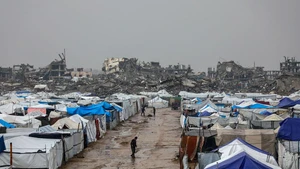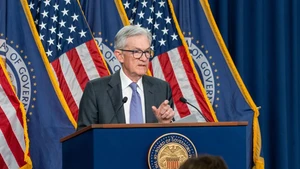Germany is mainly dependent on gas imports from Russia, so the gas war between Russia and the West has greatly affected the German economy. In the context that Russia, the largest gas exporter to the European Union (EU), shut down its pipelines in September 2022, Germany has been trying to find alternative suppliers.
Like many other European countries, Germany has worked hard to build infrastructure to import liquefied natural gas (LNG). In December 2022, the country inaugurated its first LNG receiving facility at the port of Wilhelmshaven. Although gas prices may rise again, Germany is temporarily relieved that gas reserves are increased and LNG supply is more abundant.
Vice Chancellor and Federal Minister for Economic Affairs and Climate Action Robert Habeck said that since Russia cut off gas supplies to the old continent, Germany has been struggling to find alternative sources. Norway and the US have become new sources of German energy, albeit at higher prices.
According to Vice Chancellor Robert Habeck, Germany has so far avoided the worst-case scenario that threatens to happen this summer, which is an economic recession and the collapse of German industry. He is also optimistic that Germany's gas reserves are still more than 90% full and will last through the winter, while energy prices in the country are also gradually falling.
A report by the German Federal Statistical Office (Destatis) has just released that, based on changes in the consumer price index (CPI), German inflation fell to 8.6% in December 2022, but inflation in 2022 may be at a record high of 7.9%. Although still at a high level, inflation in December 2022 marked a significant improvement from the 10% recorded in November2022 and 10.4% in October 2022, the time when inflation was estimated at a record high in the past 70 years.
According to Monika Schnitzer, a member of the German Council of Economic Experts, it may not be until 2024 that inflation will be back under control. The Munich-based Institute for Economic Research (Ifo) forecasts that the overall inflation of Europe’s leading economy in 2023 will fall to 6.4%, lower than the estimate of 7.8% in 2022. The German government predicts the economy will grow by 1.4% this year and shrink by 0.4% in 2023.
With high inflation, the German economy will continue to be gloomy. According to economists, energy prices will not fall back to pre-crisis levels in the near future and this will pose risks to the German economic outlook in 2023. Energy-intensive companies risk falling into a precarious situation.
German growth will remain restrained until 2024, with weakening global demand for goods hitting Germany's export-dependent economy. Rising energy prices and consumer anxiety cast a shadow on the outlook for 2023. However, in a survey, German companies have predicted that Germany's recession in 2023 will be only moderately light, despite "headwinds" from the energy crisis, raw material shortages and a bleak global economy.
According to President of the Federation of German Industries (BDI) Siegfried Russwurm, economic activities in the last quarter of 2022 and early 2023 are likely to decline, but only slightly. There are many signs that the German economy is resilient to the effects of the recession caused by Russia's shutdown of gas supplies. According to the German Chamber of Commerce and Industry (DIHK), there are signs that disruptions in the supply chain have subsided. The cost of transporting goods through containers is gradually stabilising, while congestion at international ports is being removed.
Although there are still many difficulties ahead, the inflation-lowering indicators and the German Government's efforts to stabilise the energy supply provide hope for a more prosperous German economy in the New Year.
















